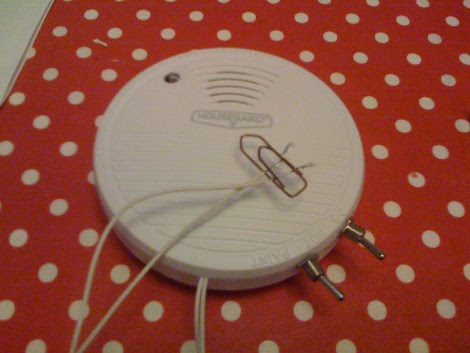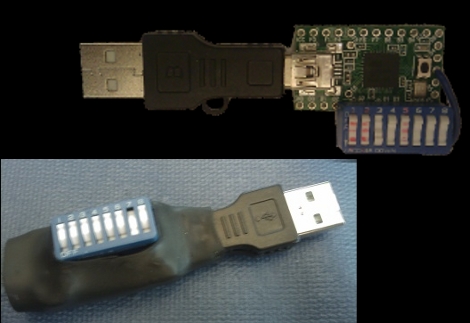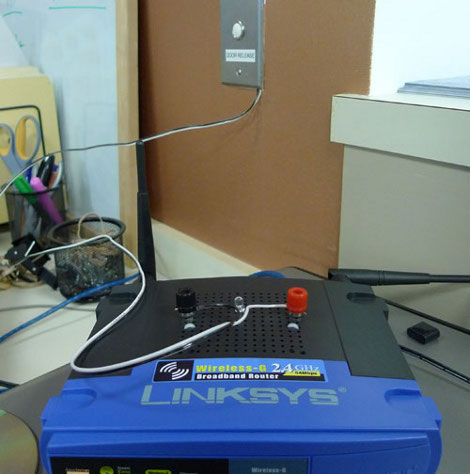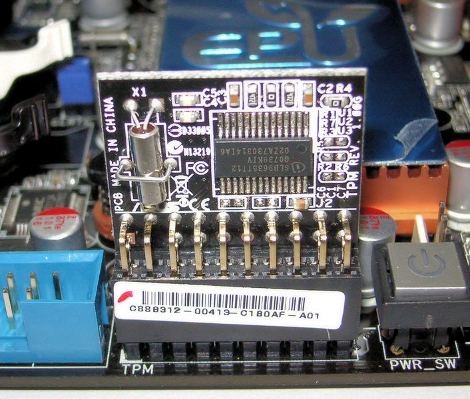
[Anders] tipped us off about his hack that re-purposes a smoke alarm as a burglar alarm. Unfortunately, he came home in the middle of a burglary but wanted to be ready the next time someone tries to break in. By cleverly patching into the test button on an old smoke detector he created a circuit-trip alarm. One side of each piece of wire is secured to the frame and jam of a window. A paper clip completes the circuit by pinching the two bare conductors. If the window is opened the connection is lost and the alarm sounds.
We see a few problems with this system. First off, never hack your ONLY smoke detector, you are putting lives at risk by doing so. But [Anders] says he’ll have a replacement detector and since these things need to be replace every ten years or so, chances are you can find an old one kicking around. We’d recommend disguising the case so that people aren’t confused about it being a smoke detector. Secondly, he’s mounted the alarm right in the window frame so most likely an invader will just smash the thing to bits.
Anyway, it’s still an interesting reuse of these ubiquitous, and life-saving, devices.

















